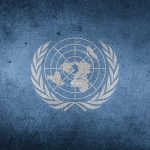Diminishing Rights: An Interview With the Muslim Legal Network’s Zaahir Edries

US District Judge Denise Casper recently found that the US Department of Homeland Security’s policy of searching electronic devices at the international border without a warrant could be in breach of the fourth amendment.
The Massachusetts federal judge ruled in March that a lawsuit challenging the rights of border agents to seize and search citizens’ smartphones and laptops could proceed, after the Trump administration tried to have the case dismissed.
Civil rights lawyers representing eleven individuals are arguing that the searches at airports and land borders are based on outdated laws that were meant to apply to suitcases and hand luggage, not to devices, such as smartphones, that hold detailed personal information.
The fourth amendment is the section of the US bill of rights preventing arbitrary search and seizures. The plaintiffs claim the searches are an invasion of their rights to privacy under that amendment and that they also breach the right to confidential speech under the first amendment.
No rights protections
Australian Border Force (ABF) officers have the powers to search people’s smartphones and laptops at Australian airports. And these powers are clearly defined under sections of the Commonwealth Customs Act 1901.
Recently, the Turnbull government announced that it proposes to provide the Australian federal police (AFP) with the power to request an individual’s ID at Australian airports, regardless of whether they have reasonable suspicion to believe the person is involved in any criminal activity.
However, Australians would have a tough time mounting a legal challenge against any of these types of searches, as, unlike in the US, this country doesn’t have a federal bill of rights that protects citizens’ personal freedoms.
Indeed, Australia is the only democratic nation in the world without a bill that guarantees rights under the law. And this lack of protection has meant the government has been able to ride roughshod over citizens’ rights whilst legislating in the name of national security.
UNSW Law Professor George Williams said late last year that 67 national security bills had been enacted at the federal level since 2001. And while other nations with rights bills, like the US and UK, have also been passing such legislation, the laws here are more numerous and go much further.
Educating the community
Due to this rising tide of legislation the Muslim Legal Network NSW, along with the Australian Muslim Civil Rights Advocacy Network, have produced a law guide to inform Australian citizens about what these laws actually entail.
Anti-Terrorism Laws, ASIO, the Police and You sets out the powers provided to ASIO and AFP officers, as well as outlining citizens’ basic rights in regard to these laws that many in the community are still unaware of.
Sydney Criminal Lawyers® spoke to Muslim Legal Network NSW president Zaahir Edries about the impact that these ever-increasing laws are having upon the Australian community, the importance of informing the public about them, and the continuing legislative trend of eroding civil liberties.
Firstly, ABF officers can request that individuals hand over their smartphones and laptops at airports in this country.
Mr Edries, under these circumstances, what powers do ABF officers actually have?
Under certain pieces of Australian legislation ABF officers are entitled to conduct searches on passengers and any persons within “restricted areas.”
This can include reading the contents of any electronic device, which can be a smartphone, laptop, flash drive or other documentation.
The Turnbull government announced last month that it’s going to provide AFP officers with unrestricted powers to request identification documents at airports.
What are the implications of extending AFP officers’ powers in this way? And what will be the likely impact?
The announcement of the proposed additional powers is disturbing. And more importantly, they do not seem to be based on any proven need to have them.
Central to most liberal democracies is the right to live a life free of the encumbrance of the state, which includes free movement and to an extent the right to anonymity.
Traditionally, police officers – including the AFP – could not randomly stop an individual and request identification without reasonable suspicion of the person either having been involved in criminal activity or about to be engaged in a criminal act.
To take away the requirement of reasonable suspicion for ID checks at the airport without any intelligence on potential security threats will undoubtedly result in racial profiling and a feeling of isolation from those persons likely to be targeted by these extraordinary powers.
The prime minister said that the new AFP powers were necessary because we’re living in “dangerous times.” Since 2014, the Australian government has passed a raft of bills’ that have impeded citizens civil liberties in the name of national security and counterterrorism.
These changes include the establishment of the mandatory metadata retention regime, broader investigative detention measures and the introduction of named person warrants.
Broadly speaking, what sort of effect would you say these restrictions have had upon Australian society?
Unfortunately, the creeping policing of civil liberties has gone largely unnoticed by the majority of Australians, who have quite willingly given up many of their rights in the interests of national security.
ASIO can detain people under certain powers, as well as question them under additional powers without the presence of legal representation. And speaking about such interactions could see an individual face gaol time.
Even something as innocent as giving money to a charity who may inadvertently fund a less than credible organisation could see individuals gaoled for up to 10 years.
We have also seen, as a result of the implementation of some pieces of legislation, political point scoring at the expense of the Muslim and Arab communities in Australia by way of wall-to-wall coverage on police raids and the demonisation of groups of disaffected young people.
Certain Australian jurisdictions – NSW for example – allow for the arrest and holding of children as young as 14 years of age without charge under the suspicion of planning terrorism offence for four days and allows for the possibility of up to 14 days, again, in absence of being charged with an offence.
Last year, the fourth edition of Anti-Terrorism Laws, ASIO, the Police and You was released. Why was it necessary to produce a law guide like this?
To our knowledge, there did not exist a publication of its kind which sought to explain in plain English the breadth of powers available to the AFP and ASIO as it related to anti-terror legislation.
Many people in the broader Australian community, as well as the legal profession, had struggled to navigate the volume and complexities of the legislative regimes proving the necessity of the publication in an updated form given the previous edition had been almost 10 years prior.
In May last year, immigration minister Peter Dutton contacted your organisation regarding the guide. He raised concerns over certain sections of it.
Can you outline what the outcome of Mr Dutton’s inquiry was?
The minister raised concerns over the wording of one section of the publication which dealt primarily with travelling overseas and the broad advice provided to persons preparing to travel to and from Australia.
The overwhelming majority of the information was sourced from the minister’s department and he was advised of this. For clarity, we revised some of the wording and addressed the minister’s concerns in our media release on 30 May 2017.
We’ve discussed how this is affecting Australian society as a whole. But, can I ask what sort of impact these laws, and the often sensational media coverage that accompanies them, have had upon the Australian Muslim community?
The major impact from a social welfare perspective seems to be the “othering” of Australian Muslims.
When a raid occurs or terrorism charges are laid with sensationalist fanfare, the result is often an uptake in Islamophobic attacks on Australian Muslims, divisive rhetoric by many politicians and a general feeling of unease within many parts of the community.
There is also a sense of resentment towards the application of national security legislation, which seems to have avoided persons who are non-Muslim, applying a significant amount of focus on an already under siege community.
Currently, there’s a case underway in the US that involves citizens questioning their government’s right to search smartphones at airports. The plaintiffs are falling back on the protections provided by the US bill of rights to support their claims.
In Australia, we have no legislation protecting our rights under the law, and at the state level, neither does NSW.
Do you think it’s necessary to legislate for a bill of rights in this country? And if so, what sort of protections would it provide that we’re not seeing at present?
A bill of rights in Australia would help solidify a number of protections not necessarily available in all jurisdictions, including the rights to privacy and religious freedom.
An example of why it is needed was the debate around the Radial Discrimination Act last year, which saw some extraordinary views tabled on what is appropriate or not when referencing persons of a different cultural, racial or even religious background.
To have had previous ministers espouse the right to be bigots in a pluralist society in the hope that freedom of speech will somehow provide an answer to obvious social and economic power imbalances was another example of why a concerted approach to a bill of rights is needed in Australia.
And lastly, governments across Australia have been passing volumes of national security laws for decades now. And each new piece of legislation seems to result in a further erosion of basic freedoms.
Last October, at a Council of Australian Governments meeting, it was agreed that a new federal law would be introduced allowing for terror suspects to be detained for up to 14 days without any charges being brought against them.
Mr Edries, how do you see this panning out? Do you believe that the government will simply continue to whittle away at citizens’ civil liberties in the name of counterterrorism, or do you think it’s likely the pendulum will swing back in the other direction?
As mentioned earlier, the NSW government passed this legislation and it is in effect. I do not see it being repealed any time soon, and in fact, its national application is almost a forgone conclusion based on previous examples of legislation.
Take for example, the imprisonment of persons for any given offence. Normally – with the exception of some very unique circumstances – upon completion of the prison sentence, the individual, having paid their debt to society, is free and encouraged to integrate into society.
In the past 24 months, we have seen legislation enacted to allow for prisoners who were gaoled for terrorism offences be subject to continuing detention orders, contrary to international legal obligations. NSW followed suit with similar legislation.
Whilst it can seem difficult, educating the broader community about the erosion of civil liberties and addressing the societal issues leading to the apparent requirement of these draconian measures is the only way forward to a more balanced approach to safety and security and maintaining our civil liberties.







